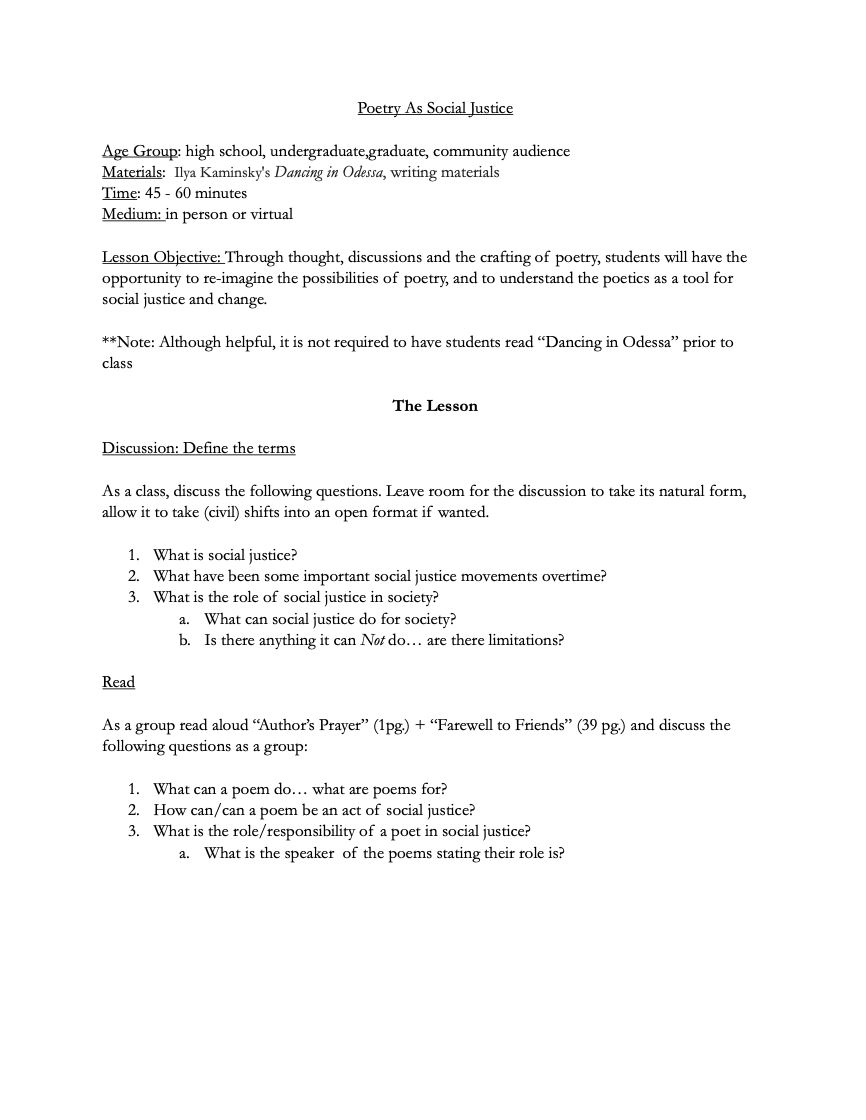

As he writes in Deaf Republic, “You will find me, God, / like a dumb pigeon’s beak, I am / pecking / every which way at astonishment. If she were given three minutes in a bed she could tell you exactly what the thread count was. I was recently having a conversation with a friend and she brought up the fact that she was a sheet snob. Yet he sings of the world-of poetry and dance and sex and love-with the highest praise. Dancing in Odessa by Ilya Kaminsky: Praise for the Author Review by TE Ballard. Kaminsky speaks of our darkest days, of tyranny and death. And through its sense-soaked imagery and bold experimentation, it is, to quote Stevens’s last requirement, living. It has to think about war / And it has to find what will suffice.” Kaminsky’s latest book, Deaf Republic, thinks deeply about war, opening with one kind of state violence (“And when they bombed other people’s houses, we // protested / but not enough”) and closing with another: “Ours is a country in which a boy shot by police lies on the pavement / for hours.” It finds, painfully and tenderly, what will suffice: the love between a husband and wife (“I am not a poet, Sonya, / I want to live in your hair”) the wonder of sensory experience (“How bright is the sky / as the avenue spins on its axis”). It has to face the men of the time and to meet / The women of the time. He teaches at San Diego State University and in the New England College M.F.A. ∺ll of Kaminsky’s work does what Wallace Stevens said modern poetry must do: “It has to be living, to learn the speech of the place. Ilya Kaminsky is author of Dancing in Odesa (Tupelo, ) and co-editor of The Ecco Book of International Poetry () and editor of This Lamentable City: Poems of Polina Barskova (Tupelo, ).


 0 kommentar(er)
0 kommentar(er)
